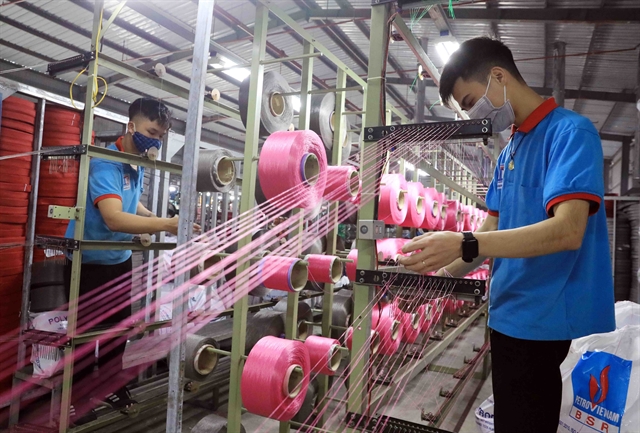
HCM CITY — Though the COVID-19 pandemic has cast a shadow over the global economy, the HCM City office space market has not been badly affected this year, according to property consultancy companies.
A report from the CBRE said during the first quarter the city office market added one new grade B building, Friendship Tower on Le Duan Street, District 1, with a total net leasing area (NLA) of 13,700sq.m.
It took the total supply in the office market to 1.37 million square metres.
Though the market has yet to see a significant impact, CBRE said many tenants have asked landlords to cut rentals by 15-20 per cent to compensate their revenue loss. Landlords have agreed to delay rent payment but, if the pandemic situation worsens, could agree to cut rents.
If the outbreak is contained before June the rental growth outlook could still be positive, CBRE said.
But if the disease is contained only by September the outlook would be more bearish, with rents likely to decrease by 8-10 per cent as companies demand cuts.
“CBRE also recorded some delayed and cancelled transactions [scheduled for] the end of the third quarter as international tenants face difficulties in visiting potential sites,” CBRE said.
“Such travel restrictions will possibly lead to a decrease in absorption of new supply, especially with the HCM City office market expected to welcome more than 70,000sq.m of NLA by the end of 2020.
“Hence, the market vacancy rate will increase regardless of how soon the disease is contained. Should the disease be contained before June the vacancy rate will only increase from 7 per cent to 14 per cent. However, if the disease lasts until September the vacancy rate might increase to 14-16 per cent.”
Jones Lang LaSalle (JLL) said, “The impact of Covid-19 on grade A and B demand is still limited.”
Around 68,700sq.m of new office space was completed in the first quarter, mainly in grades B and C, bringing the office stock to more than 1 million square metres in each category.
Most of the successful deals in the first quarter were negotiated before the epidemic and so the impact of COVID-19 on demand in grades A and B is still limited.
Companies have said that the outbreak is an outstanding opportunity to switch to flexible workspace and decentralised office buildings. During times of such economic and business disruptions, most bear significant rental costs while not generating much revenues, while large tenants realise that business discontinuity could occur if they have only one office during lockdowns.
“After the COVID-19 pandemic, the office market will be shaped by new trends in which tenants will prioritise agile working options,” Dương Thuỳ Dung, senior director of CBRE Vietnam, said.
“Tenants will prioritise agile working options like leasing flexible workspace or distributing workforce to various offices across the city.
“Tenants will start to pay more attention to their employees’ wellness instead of focusing too much on saving rental costs like before. LEED-certified buildings that comprise wellness features such as environment-friendly spaces, quality ventilation systems and natural lighting will be tenants’ new preferences in future.”
JLL predicted that since most new buildings that would enter the market in 2020 are already in the fitting-out stage or nearly completed, there would be no adjustment to its last forecast before the pandemic.
“As the global economy remains uncertain, especially now with the impact of Covid-19, tenants’ new set-up and expansion plans could possibly be affected in the near-term.
“The landlords of large vacant buildings, many of which are newly completed, may need to consider their rents and leasing strategies to attract tenants.” — VNS































